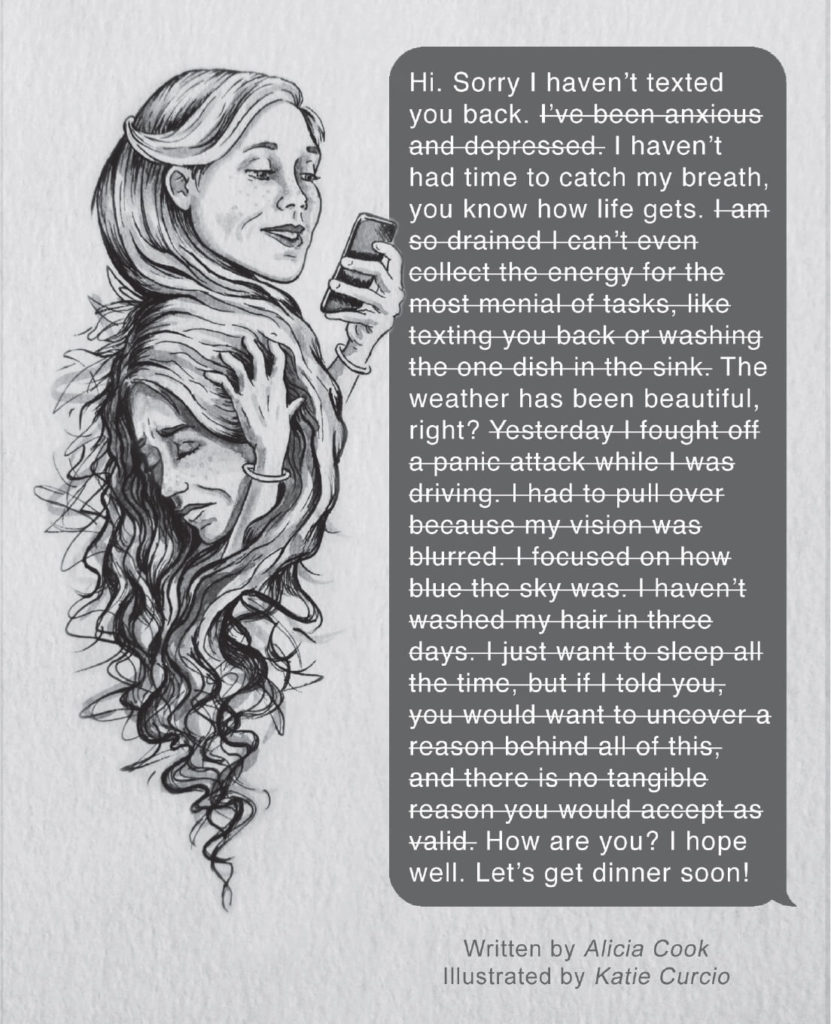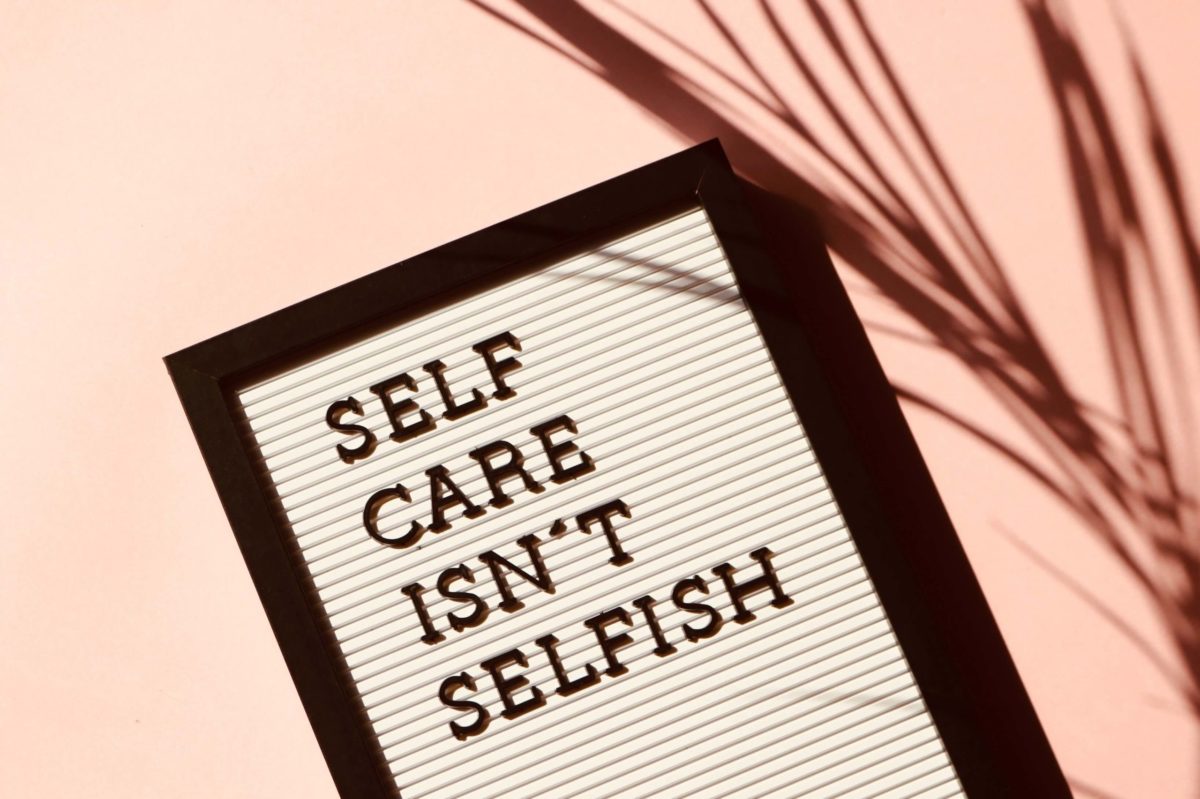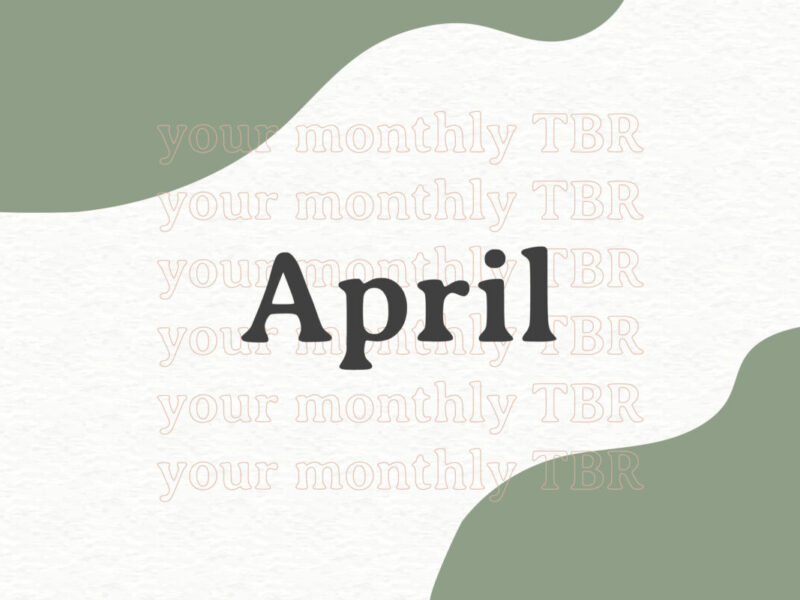3 Poems for World Mental Health Day
Trigger warning: This article discusses suicide, depression, and OCD.
Mental health is one of the most important issues facing our world today, and the global pandemic has exacerbated this issue by creating a health crisis. Depression and anxiety are on the rise, especially in the United States, one of the countries with the most cases and fatalities from COVID-19. It’s necessary to honor the plight of the world with a day dedicated to our collective mental health. That’s why it’s crucial to take time for World Mental Health Day, an annual event that brings awareness and attention to this important topic.
Last year’s World Mental Health Day recognized suicide prevention, and this year’s event will bring attention to how the coronavirus has impacted our lives and why it’s necessary for companies, governments, and individuals to invest in mental health resources. On Oct. 10, “the World Health Organization will, for the first time ever, host a global online advocacy event on mental health.” World leaders, celebrity guests, and mental health experts will address what we can do to acquire better mental health care. You can access the event on their social media platforms to hear personal stories, listen to musical performances, participate in live Q&A sessions, and gain information about the World Health Organization’s efforts and initiatives to improve the mental health of our global community. You can also join their campaign and explore free resources on their website, which include articles and illustrated guides.
On World Mental Health Day, take time to explore poetry about mental health, as it’s one of the most rewarding ways to understand the complexities of the mind. Here are three terrific poems to get you started.
“OCD” BY NEIL HILBORN
Obsessive compulsive disorder (OCD) is one of the most minimized and misunderstood anxiety disorders. Children and adults who have OCD usually go undiagnosed for many years, and without a diagnosis, the condition escalates with time. OCD ranges in severity, but those who have severe OCD are usually not able to function in society—to the point that their compulsions and obsessions prevent them from leaving home—some people require medication. The good news is that there are effective treatments for OCD—one of which is called Exposure and Response Prevention, a form of therapy that evolved from Cognitive Behavior Therapy (CBT). Therapists and support groups are also available for people who suffer from OCD, so there is ample hope.
One compelling way to learn about OCD is to listen to an amazing spoken word performance from a poet who suffers from OCD. In this Button Poetry performance, Neil Hilborn talks about how OCD is a form of repetitive mental chatter that doesn’t give him peace of mind. He worries about checking compulsions, asking questions like, “Did I lock the door?” and “Did I wash my hands?” He repeats this while shaking his head to show how these intrusive thoughts disturb his mind.
Whenever Neil speaks about his OCD, he talks quickly to show the overwhelming nature of the thoughts, but when he speaks about his romantic interest, his voice slows down, his body relaxes, and he demonstrates through movement how love and romance have the power to calm his mind. The poem is an emotional and visceral journey of his relationship and how OCD affected it. In the end, he says, “I want her back so bad, I leave the door unlocked.” The crowd responds to this powerful epiphany with cheers and applause. This is a great performance and poem because it shows how effective poetry can be to express a complex mental health issue.
“SORRY I HAVEN’T TEXTED YOU BACK” BY ALICIA COOK
Alicia Cook is a poet and mental health advocate. In her erasure poem “Sorry I haven’t texted you back,” she writes about the relatable experience most of us have when we’re asked how we’re doing, or when someone reaches out to connect. Sometimes we give only the best version of ourselves to others—even the people we love. We often don’t show our vulnerability or reveal how we’re struggling, but it’s important to express that side of ourselves. Maybe the other person receiving the text, phone call, or hug is also struggling.
It’s in sharing our true feelings that we can connect with friends and family and increase emotional intimacy in our relationships. When we only share the positive highlights of our lives, we give a false depiction of what it’s like to be human. With this poem, Alicia encourages us to be honest in our communication, even when sending a text message.

“THE MORNING AFTER I KILLED MYSELF” BY MEGGIE ROYER
When speaking about mental health, it’s important to address one of the biggest taboo topics in society: major depression and suicide. A great way to learn more about this issue is by reading poetry. In this viral poem by Meggie Royer, the speaker has already committed suicide, and she offers touching details of all the beautiful things in her life she couldn’t appreciate when she was alive. She also visits all the people in her life who loved her: “I fell in love with my mother and the way she sat on the floor of my room holding each rock from my collection in her palms until they grew dark with sweat. I fell in love with my father down at the river as he placed my note into a bottle and sent it into the current. With my brother who once believed in unicorns but who now sat in his desk at school trying desperately to believe I still existed.” Meggie’s poem is reflective and offers hope to those who think there is nothing left to live for.
If you are struggling with suicidal thoughts, there are many free resources and caring people who can help. The National Alliance on Mental Illness has free support groups in many cities, and the National Suicide Prevention Hotline “provides 24/7, free and confidential support for people in distress, prevention and crisis resources for you or your loved ones, and best practices for professionals.”
And for more great poetry about mental health, check out Rattle’s issue #56, exclusively devoted to breaking the stigma on mental health.




